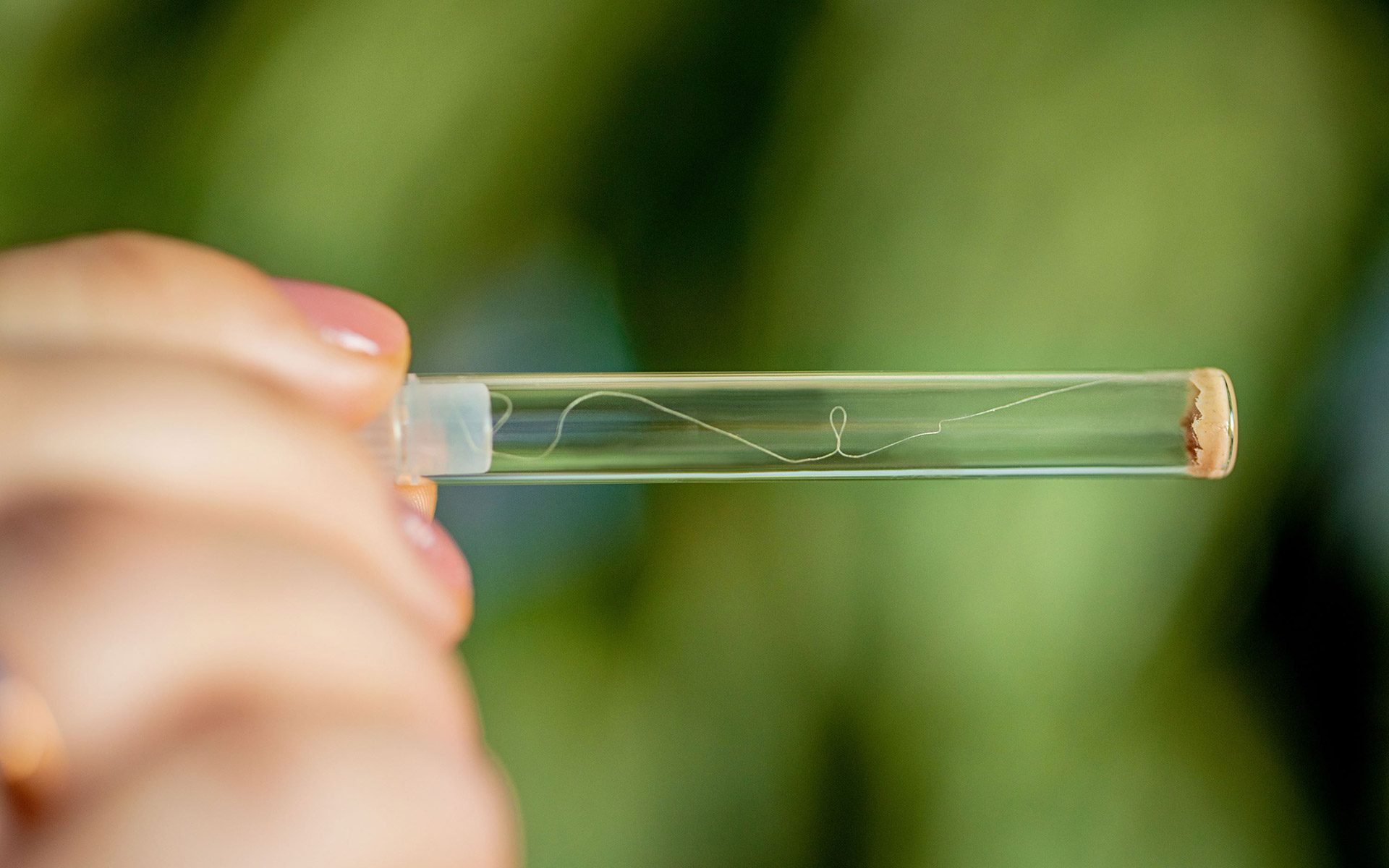LPP extends collaboration with Use Waste start-up on textile waste recycling technology

Polish company LPP is continuing its efforts relating to garment recycling technology. Following the success of the first stage of the research project carried out jointly with Use Waste start-up, which resulted in the production of a polyester thread, it has been decided to extend the cooperation and start works on recycling material blends. The aim of the research is to develop a technology that will allow fibres from the most commonly used materials in the textile industry to be separated into fractions and extract from them a raw material that, in line with the textile-to-textile concept, will become a resource – not waste.
The extension of the 2022 agreement between LPP and Polish start-up Use Waste opens a new chapter of the works on clothing recycling technology. As part of the collaboration, Polish researchers have so far focused on developing an efficient and scalable method for recovering polyester fibres from used clothing and using them to produce new fabrics made exclusively from recycled raw materials. The successful laboratory stage of the first phase of the project prompted the Polish company to expand its search to include material blends.
– At present, there are many projects on the market that aim to make the use of textile waste in the production of clothes in line with the textile-to-textile concept as widespread as possible. Given how much of a challenge for the industry are still second-hand clothes ending up in landfills, any new technology to reduce this phenomenon is worth its weight in gold. However, one should note that most of them primarily concern the recycling of mono materials, and as it turns out, it is material blends that are a common solution used in the textile industry, because of their numerous advantages – comments Ewa Janczukowicz-Cichosz, sustainability expert, LPP.

Combining natural and synthetic fibres, for example, is a common and popular solution in the apparel industry. For instance, it makes it possible to combine the thermal comfort of natural fibres with the comfort and stretch of synthetic fibres. It is not uncommon for synthetic fibres to also improve the durability and resilience of a garment. However, such blends pose a challenge to the recycling process.
– What on the one hand is an advantage in the course of using the products, also enjoyed by customers, becomes a major challenge at the recycling stage. Therefore, building on the observations from the first stage of the research work, we have decided to extend our collaboration with Use Waste and start researching the recovery of yarn from fabric blends. We are convinced that such technology will fill a market gap by increasing access to textile-to-textile recycled raw materials. Ultimately, this will allow us to close the textile cycle and reduce the use of primary raw materials, thus supporting the implementation of eco-design principles – says Ewa Janczukowicz-Cichosz.
The development of the project carried out by LPP in cooperation with Use Waste is an opportunity to develop and then introduce on a commercial scale an effective method of recycling not only mixed materials containing, for example, a combination of polyester with cotton, wool, polyamide, elastane or viscose. It is also a response to the need to manage the heterogeneous fractions arising from the recycling of mono-material fabrics made of polyester, such as thread.
– As part of the first stage of the project, completed in 2023, we developed a proprietary concept for the selective depolymerisation of polyester fabric. This way, we obtained a full-weight polyester yarn of non-degraded quality. It was created from raw materials obtained by recycling fabrics whose purity is higher than those commonly used in industrial polyester production, and these raw materials will ultimately be used to produce the new yarn. Our aim now is to develop an improved technology that allows the selective separation of individual fractions from fabric blends. In order for each of these fractions to be reused as a resource, however, it is important that the fibres obtained as part of the process are of the best possible quality for reuse in the spinning and weaving process. This is a challenge, but preliminary analyses show us that we have the potential to successfully face it – emphasizes Adam Handerek, director, Use Waste.

Laboratory research into transforming textile waste into new, wholesome yarn opens the way for the production of textiles from recycled raw materials. On the other hand, it is a huge challenge for the textile industry.
– On the one hand, the implementation of an innovative yet scalable technology has the potential to contribute to the reduction of clothing waste. On the other hand, however, it requires close cooperation between all players in this market, the development of national know-how and the commitment of significant investment. At LPP, we are convinced that the first step is important. We hope that soon, thanks to the cooperation and financial support of other partners, we will be able to tap into the success achieved in the comfort of the labs of Polish scientists in a pilot production process on a large scale – adds Ewa Janczukowicz-Cichosz.
______________________________________________________________________________
LPP is a Polish family business and one of the fastest growing clothing companies in the region of Central Europe. For 30 years, it has been successfully operating in Poland and abroad, offering its collections in such prestigious capitals as London, Helsinki or Tel Aviv. LPP manages five fashion brands: Reserved, Cropp, House, Mohito, and Sinsay, whose offer is available today in stationary and online stores in nearly 40 markets worldwide. The company has a chain of over 2200 stores with the total area of nearly 2 million m2 and distributes clothing and accessories to 3 continents every year. LPP also plays an important role as it employs 43 thousand people in its offices and sales structures in Poland, Europe, Asia, and Africa. The company is listed on the Warsaw Stock Exchange in the WIG20 index and belongs to the prestigious MSCI Poland index.

